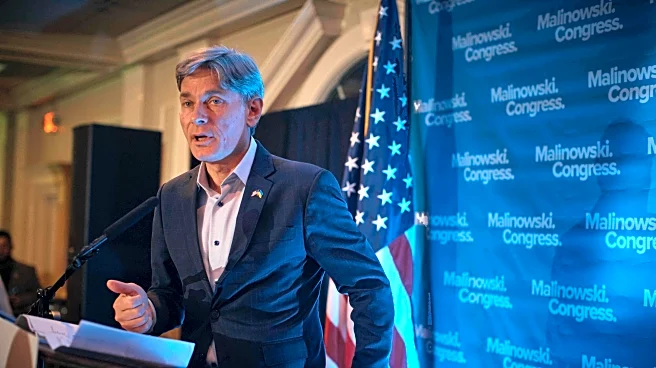Rapid Read • 8 min read
The Trump administration has enacted significant budget cuts affecting higher education funding through the One Big Beautiful Bill Act (OBBBA). This legislation, signed into law by President Trump in July 2025, introduces changes that could increase the financial burden on students, particularly those from low- and middle-income families. The bill imposes new loan limits for graduate and parent borrowers, potentially forcing them to rely on private loans with higher interest rates and less flexible repayment options. Additionally, the administration's cuts to research grants and international student policies may lead to increased tuition prices as universities face financial strain. These changes come amid rising college costs, with published costs of attendance reaching record highs at some institutions.
AD
The budget cuts and policy changes introduced by the Trump administration could have far-reaching implications for the U.S. higher education sector. By reducing federal support and altering loan programs, the legislation may make college less accessible and affordable for students from lower-income backgrounds. This could exacerbate existing inequalities in education and limit opportunities for economic mobility. Furthermore, the cuts to research funding and international student enrollment could impact the financial stability of universities, potentially leading to staff reductions and increased tuition fees. These developments highlight the need for robust federal and state investments to ensure equitable access to higher education.
As the Trump administration's policies take effect, universities and students may face increased financial challenges. Institutions may need to explore alternative funding sources or implement cost-saving measures to offset the loss of federal support. Students, particularly those from disadvantaged backgrounds, may struggle to afford higher education, leading to potential declines in enrollment and graduation rates. Policymakers and educational advocates may push for reforms to stabilize and sustain higher education funding, potentially through new federal-state partnerships or legislative proposals aimed at improving college affordability.
The Trump administration's budget cuts and policy changes could have deeper implications for the U.S. education system. By shifting costs to students and reducing federal support, these measures may undermine the role of higher education as a pathway to social mobility. The changes could also impact the diversity and inclusivity of U.S. universities, as international students face barriers to enrollment. Additionally, the focus on private loans may exacerbate financial inequalities, as students with less access to credit face higher borrowing costs. These developments underscore the importance of equitable funding models and comprehensive policy solutions to address the challenges facing higher education.
AD
More Stories You Might Enjoy












